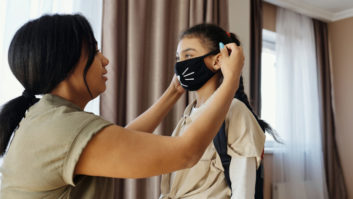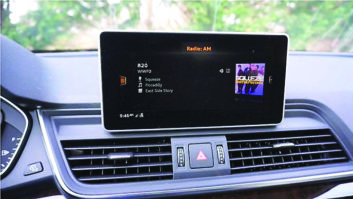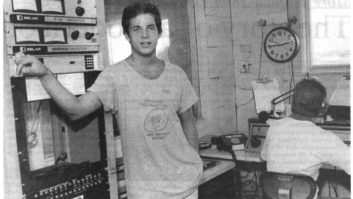The author is membership program director of the National Federation of Community Broadcasters. NFCB commentaries are featured regularly at www.radioworld.com.
There has been a lot of activity on the marijuana legalization front very recently. Indirectly, this is a conversation noncommercial media will be forced to contend with.
New York state’s Senate and Assembly announced pot legalization was on the front burner. That was not all. In addition, New Mexico, Florida and New Jersey were among the states moving ahead on this topic. Forbes estimates Minnesota, Illinois, Connecticut and Rhode Island will join those and the 10 or so other states that currently permit recreational marijuana use.
[Read: Community Broadcaster: Who Owns What]
For the states considering such changes, taxes are a centerpiece. Legislators want their constituents to see revenue for roads, schools and civic needs by taxing recreational marijuana. Politicians have banged the drum about high taxes for decades. Republicans and Democrats alike seem open to considering drug law reforms to keep such promises.
While states are changing their approaches, marijuana remains illegal on the federal level. This prohibition impacts a constellation of areas. Banks remain skittish about handling money from the industry. This approach goes for many other organizations. Arguably, this ban has had a dovetail effect. In Colorado, for instance, gentrification is a growing concern because the influx of cash has meant purchase of property, which in turn drives up housing purchase and rental prices.
At community radio stations in the above states and beyond, the debate hits much closer to home.
For many noncommercial radio stations, underwriting has long been a cornerstone of their existence. The Federal Communications Commission has clear rules about underwriting. They’re the guidelines that many stations live by. When there are gray areas, groups like Greater Public, the National Federation of Community Broadcasters and others are there to give tips to a station.
You can guess where this is headed, right?
Cannabis has meant dozens of cities and towns have a range of dispensaries, marijuana lounges, pot testing firms and many related industries springing up locally. Many of these business owners may be looking for new customers open to their industries. As do many other firms, these companies are looking at noncommercial radio on-air underwriting as an option. Due to federal regulation of broadcasters, though, station managers everywhere are in an uneasy position.
Put bluntly, as one general manager once told me, it is hard to be in a place where these businesses, who may look fondly upon a local radio station, have lots of cash on hand and want to underwrite. The managers may be okay with this and the businesses have money to spare, but Washington, it is felt, may be putting the brakes to these deals.
With the FCC regulating community radio and ultimately determining whether a station can keep its license come renewal time, federal laws about marijuana mean noncommercial radio, with its own federal oversight, may not be able to touch that money at all.
Now put yourself in the shoes of a manager with a staff worried about cutbacks, or whose budget may end up in the red in December. Turning down what could be a windfall in possible support is challenging, to say the least.
Critics of the legalization movement say there are legitimate health and safety risks states should more closely consider. In New York State, the aforementioned priority on legalization is being scrutinized by educators. In all, the drug debate is not going away. More than half the states in the nation are seemingly holding their ground on the matter, in fact.
The conflicts over marijuana and noncommercial broadcasters is not isolated to pot. The same dilemma could be said of the e-cigarette and vaping industries. Cigarettes have long had their own maze of regulations related to advertising and underwriting. But what of these items that are not quite cigarettes, but are not quite not cigarettes either? As these devices continue to grow in popularity — worldwide smoking of these products went from five million to 40 million in eight years — where they fit in noncommercial broadcasts is a popular discussion.
Later this month, the National Federation of Community Broadcasters will host a webinar on controversial underwriting subjects. Attorneys Francisco Montero and Robert Winteringham of the law firm Fletcher Heald & Hildreth (well-known for the excellent CommLawBlog) are poised to tackle these matters and much more. Perhaps they may help stations come to some resolution on these subjects.











